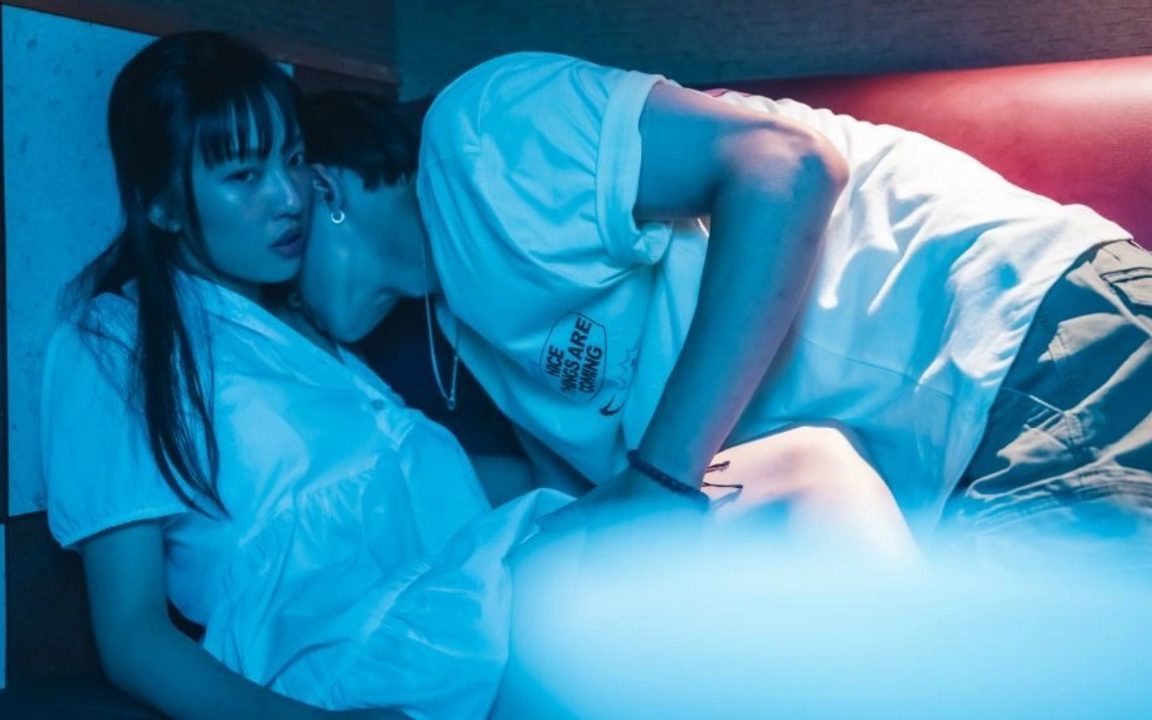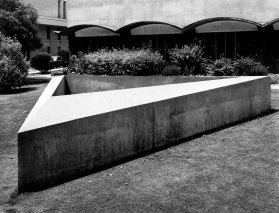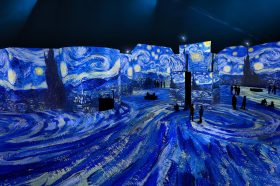A light-washed ode to girlhood and Taipei, director Lee Yi Fang’s Little Blue is a mediation on female desire through the dreamy lens of adolescence. Not a film of specifics in narrative flow, it is an overseer of little moments that unravel over the arc of Xiao Lan’s (played by Wang Yu-Xuan) path of self-discovery – as a genesis of feminine transformation.
When Xiao Lan is first introduced to us, she is malleable the way bruised fruit is – easily puckered if somebody squeezes a little too hard. She is first gangly and uncertain of who she is, distanced from the performance of femininity that she observes in her peers. As she draws closer to self-glamourisation, Xiao Lan grows at once apprehensive and disheartened by her own efforts. This transition is underscored with light terror: after nudes of Xiao Lan are leaked online in a careless slight, she hacks away at the old her – shortened skirts, a fringe to give her face dimension – with a detached wispiness that is half-baked to save face. Wang Yu-Xuan develops this with skill in the minutiae of her performance.
Xiao Lan’s metamorphosis is subtle in its loss of control. There is a moment in Little Blue where the head teacher calls her an “astray woman”, before she coolly draws attention to his straining erection before gliding out of the office. She spends a large portion of the film rotting in bed, face angled only towards the comfort of her screen where she pores over her digital presence, self-styled as an agonised, coquette-inspired waif.
Then there is her mother. Xiao Lan’s foil in age and disposition, Vivi (Helena Hsu) is terse and beautiful, bold in her sexuality but entrapped by her age, which she keeps private like a death sentence. To each other, they both resemble the trappings of the other woman – Vivi commands her sexual trysts with practised ease, yet mourns the unconventional vector in which she exists in Taiwanese society as an ageing mother who is cavalier with her desires. In contrast, Xiao Lan is riveting, but vacuous – in the prime of her life and, yet, unquestionably suffering. Her father is never mentioned.
The colour grading is Coppola-reminiscent, the city of Taipei mainly composed in light pastels. All the indistinguishable apartment units that Vivi leases and later repurposes for trysts with her client-turned-lover are painted milky white. There are also blank and delicately sterile hotel rooms, the wall behind the schoolyard where Xiao Lan and her best friend puff away on cigarettes, and on the beach where Xiao Lan loses her virginity – lightness here is impartial and blank.
Later, certain moments bathed in neon and blue hint at the hope that the story will start to shape out. Little Blue remains thematically obtuse through to the end, but not unconscionably so. There are two moments in the film when Xiao Lan returns to the surface, more concentrated in the reality of this world.
In the emotional climax of the film, she comes across her mother in the same love motel, head to head with the men they have plucked and hidden from one another behind them. Both women are upset and shame colours the heated exchange as they shout at one another on a dusky street. The outburst does not equal conflict, however, and later they return home silently together in a taxi, shaded by the yellow-toned street lamps at night.
When Xiao Lan is having sex with a nameless suitor in a love hotel, she tells him between pants never to exit her body or to leave her. He buys her a slice of cheesecake afterwards, and she eats it nimbly with devotion.
To say that the film is entirely devoid of a moving plot would be to overwrite Lee’s ability to capture the ordinariness of Xiao Lan’s life like a reverie, where the director chooses not to overly complicate these beats of unbelonging. A deepening of these tensions – be it a bolder march into inconsequence felt by Xiao Lan or a continual fraying of her psyche – would have further added to Little Blue’s conviction. Yet, perhaps it is the film’s intention to leave us unfulfilled, and exemplify how it feels to be mauled by gradual neglect.
Read: Theatre review: Miss Peony, Belvoir Theatre
A feeling of girlhood loss can reach many. That narrative language persists today, in the waywardness many young women feel as they try to mature in their own skin. Little Blue touches on the subtlety of this loss for those who are beginning to recognise the potential of their own bodies.
Little Blue was screened as part of Taiwan Film Festival from 23 July to 19 August in various cities across Australia.
This review is published under the Amplify Collective, an initiative supported by The Walkley Foundation and made possible through funding from the Meta Australian News Fund.





